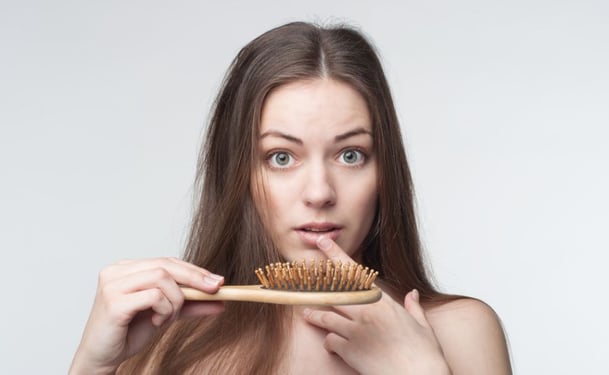Hair loss is mostly determined by genetics and may be difficult to prevent. However, there are a few factors that may facilitate the early onset of Hair Loss and aggravate the problem. These factors may include the diet, lifestyle and hormonal deficiencies of the patient.
A Healthy Diet
A healthy diet can prevent or delay hair loss in people that are prone to this condition. The diet should be balanced and contain the necessary nutrients, vitamins and minerals. For instance, a deficiency in vitamin A and E can promote hair loss.
A nutritionist can be consulted to establish a diet that is right for the patient. The diet is tailored to each patient in part, according to the lifestyle, age, sex and dietary preferences. The diet alone may influence the health of the hair, but there are also other factors to consider when trying to prevent Hair Loss.
Maintaining Hormonal Balance
The activity of the hormones can affect the quality of the hair both in men and women and a hormonal imbalance can lead to hair loss. Hormonal balance can be maintained through diet and a healthy lifestyle and by monitoring the health of the skin permanently. The skin can indicate if there is a health problem, as if it is excessively dry or oily, this can be a sign of a lack of or an excess of hormones. There are certain internal dysfunctions, such as hyperthyroidism or hypothyroidism, that can affect the hormonal balance and result in hair loss. After pregnancy, hair loss can also be common.
Blood tests can reveal if there is a hormonal imbalance. If a hormonal imbalance is detected, it is important to get a hormonal treatment immediately.
Lifestyle
Harsh chemical exposure, the use of colorants and perms of the hair can weaken the hair follicle and lead to hair loss. The use of natural shampoos and conditioners can maintain the health of the hair and delay hair loss.
Frequent infections, especially infections that affect the scalp may also cause Hair Loss, so it is important to keep the hair clean and prevent infections. Stress is believed to contribute to Hair Loss. Even if there is no scientific back up for this presumption, stress may affect the health of the hair follicles and there are also people that develop behaviors, such as excessive hair stroking, which can result in more Hair Loss.
Certain drugs may also cause hair loss, so it’s best to monitor the number of hairs that fall out each day and notify the doctor if more hair falls out, as a result of a type of treatment. The treatment should be discontinued if possible or replaced with other drugs.
In some cases, when the hair loss is not due to hereditary factors, this problem may be helped and even prevented. Hair Loss may be temporary (i.e. after pregnancy), but it may also be permanent.



